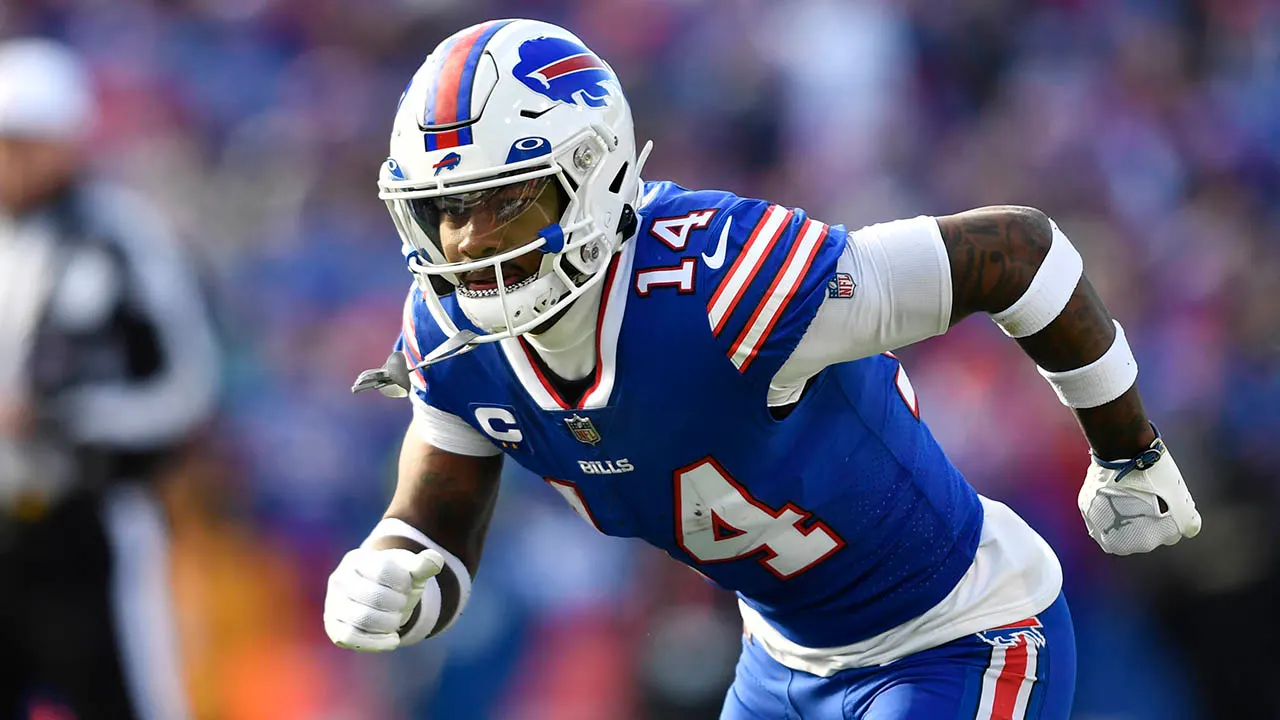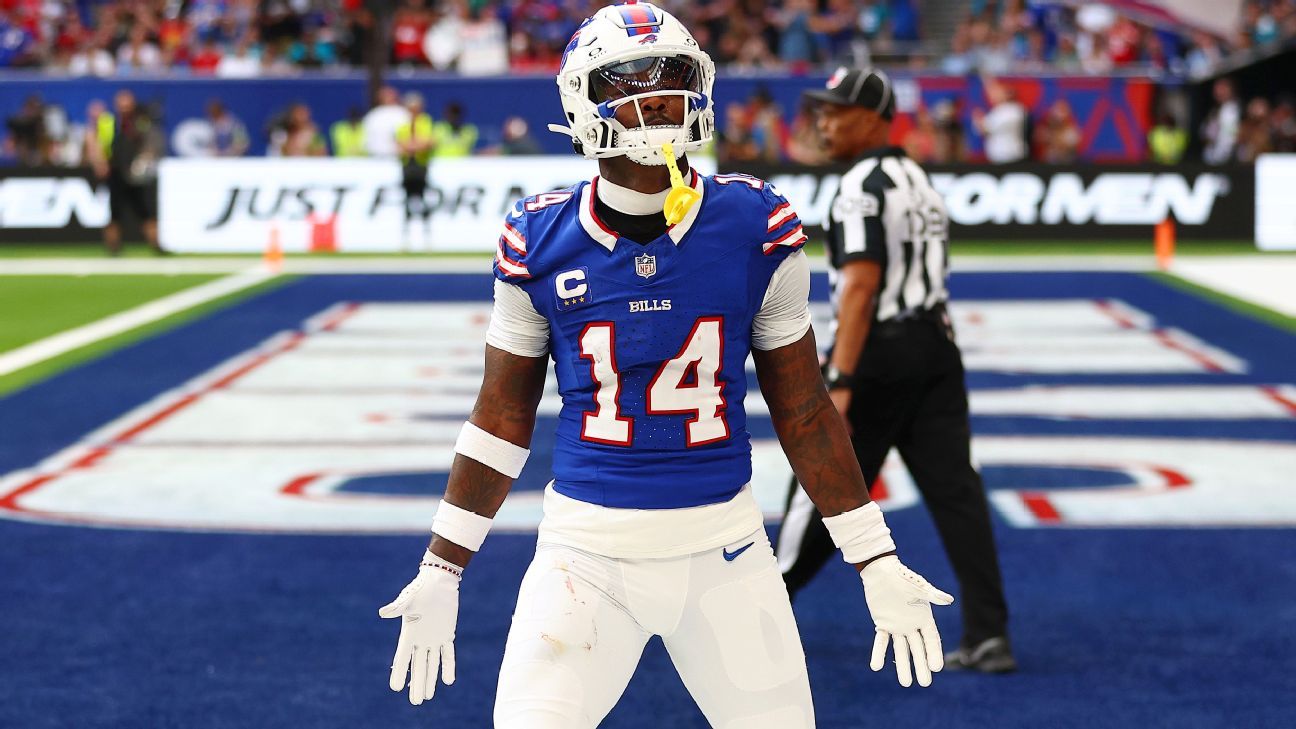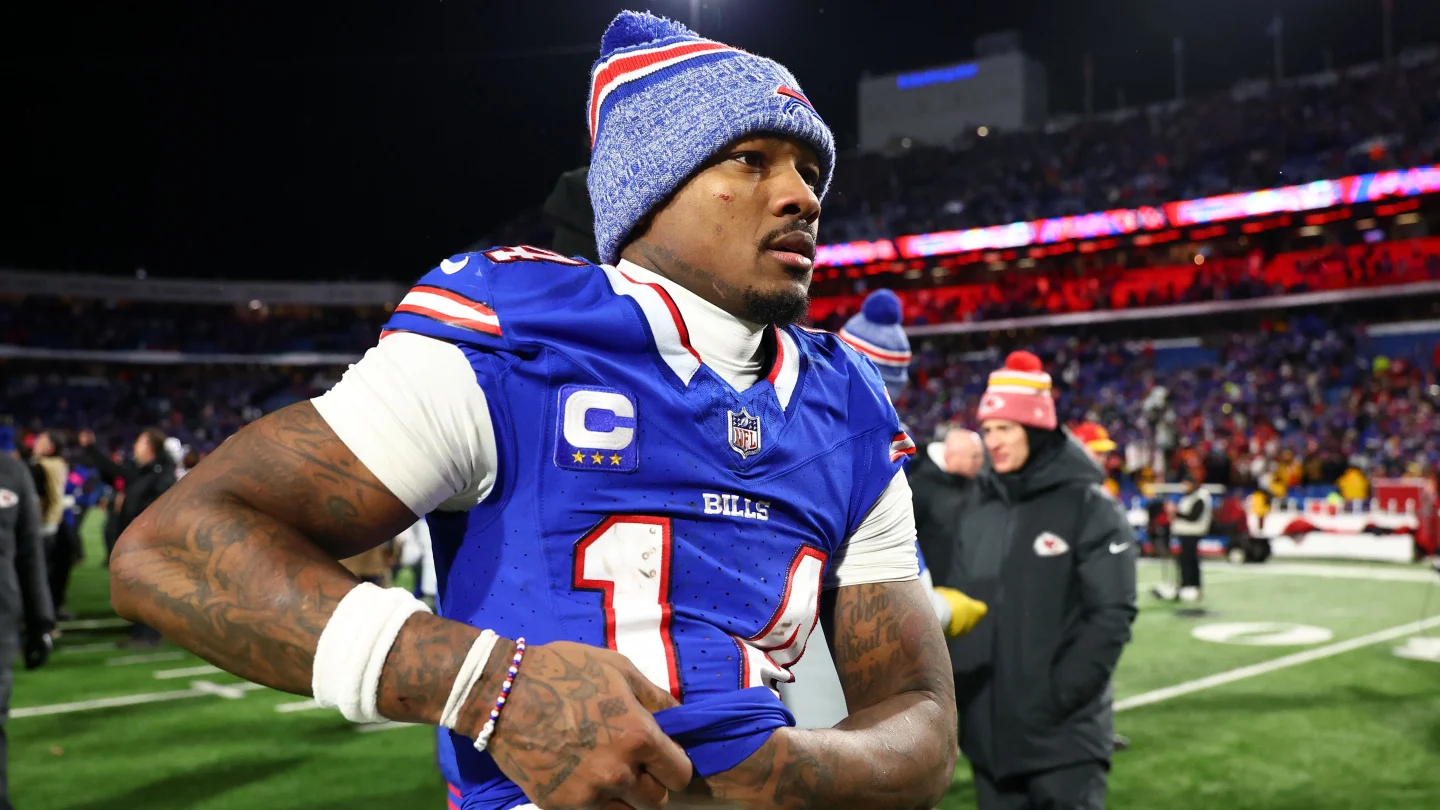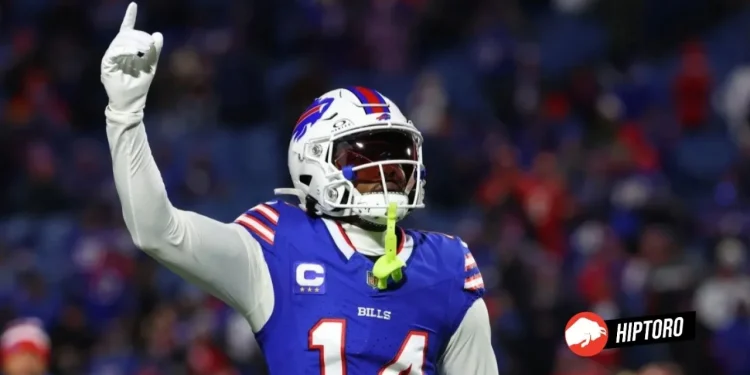In the high-octane world of the NFL, rivalries are not just about the clashes on the gridiron; players like Stefon Diggs extend into strategic maneuvers off the field, shaping trades and team dynamics in unexpected ways. A prime example of this unseen tension unfolded recently, involving AFC heavyweights the Buffalo Bills and Kansas City Chiefs, and the sought-after wide receiver, Stefon Diggs.

Buffalo Bills Exclude Kansas City Chiefs from Stefon Diggs Trade Talks
The Buffalo Bills, in a move that has sparked widespread discussion, decided to trade Stefon Diggs, but with a notable exception: the Kansas City Chiefs were off the trading table. This decision illuminates the Bills’ strategic mindset, viewing the Chiefs not merely as competitors but as a significant roadblock in their quest for AFC supremacy.
The trade eventually saw Diggs moving to the Houston Texans in exchange for a second-round pick, a transaction that left many questioning the Bills’ valuation of Diggs and their reluctance to engage with the Chiefs.
INTERESTING…. The reason Stefon Diggs wanted to be traded from the #Bills was because he didn't think they could beat the #Chiefs, #NFL legend DeSean Jackson said.
— MLFootball (@_MLFootball) April 4, 2024
The Kansas City Chiefs’ Conundrum
The Kansas City Chiefs, with their receiving corps under a cloud of uncertainty, particularly with Rashee Rice’s legal issues, are in dire need of reinforcing their lineup. With the 2024 NFL Draft on the horizon, speculation abounds that the Chiefs are eyeing a wideout, though whether this will be a first-round pick or a Day 2 selection remains to be seen.
Why Not Kansas City Chiefs?
The Bills’ refusal to trade Stefon Diggs to the Chiefs underscores a strategic calculus aimed at avoiding any strengthening of their AFC rival’s roster. Chris Simms of NBC Sports shed light on the situation, stating, “From what I do know, right, is that he was allowed to seek a trade from anybody in the league, except the Kansas City Chiefs.”
This statement highlights the Bills’ determination to not pave the way for the Chiefs to acquire another top target for Patrick Mahomes, thereby complicating their path to success in the AFC.

The Houston Texans’ Gain
On the other side of the trade, the Houston Texans emerged as an unexpected beneficiary, acquiring Diggs for a seemingly modest return. Despite having competent receivers in Nico Collins and Tank Dell, the Texans jumped at the opportunity to add a player of Diggs’ caliber to their roster.
This move, facilitated by the Texans’ cap space and an attractive offer to Diggs, has been termed a ‘heist,’ given the quality of the player involved and the relatively low cost.
NFL Teams Rethinking Rivalry Trade
The trade’s repercussions extend beyond the immediate players and teams involved. It signals a shift in how teams view intra-conference trades, especially when it comes to dealing with direct rivals. The Buffalo Bills’ strategy, prioritizing long-term competitiveness over immediate gains, may set a precedent in how trades are negotiated, especially with the shadow of rivalries looming large.

NFL Rivalry Shapes Trade Strategies
The Stefon Diggs saga is more than a simple trade; it’s a narrative rich with strategic depth, showcasing how NFL teams navigate the treacherous waters of rivalry, talent acquisition, and team building. As the Bills, Chiefs, and Texans move forward, the impact of this trade will be felt not just in the upcoming season but in the strategic approaches teams adopt in the high-stakes game of NFL trades and acquisitions.

Sources: Fansided









